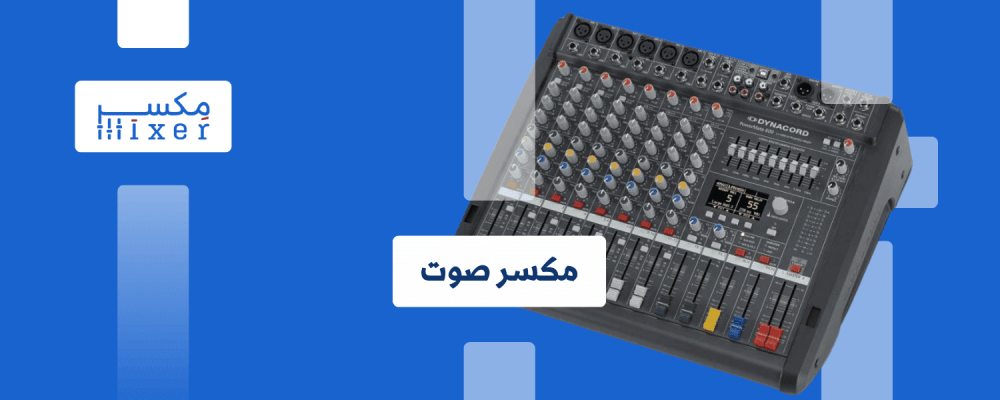introduction :
An audio mixer is an essential electronic device in the world of audio, recording, and music production. This device collects many different audio signals, such as the sound of microphones, musical instruments, and pre-recordings, and combines and edits them to produce a complete and harmonious sound mix.
Why do we use a sound mixer ?
- Recording: The audio mixer is used to record music, podcasts, and interviews, as it allows you to record multiple audio sources at the same time and adjust the level of each one.
- Live broadcast: At concerts and conferences, the mixer is used to adjust the volume for each performance and direct the sound to different speakers.
- Music production: The mixer is an essential tool in the music production process, where sound effects are added, frequencies are modified, and the volume is adjusted.
- Radio and Television: Mixers are used in radio and television studios to mix sounds, music and sound effects.
Basic components of a sound mixer :
- Input channels: These are the connection points where microphones, musical instruments, and other sound sources are connected.
- Phantom Voltage: An additional power source that supplies the condenser microphones with the power they need to operate.
- Channel Gain: Used to adjust the level of the audio signal entering each channel.
- Equalizer: Allows you to adjust different frequencies in the sound to get the desired sound.
- Panorama: Used to locate the sound in the sound field (left, right, center).
- AUX: Used to send an audio signal to an additional processor, such as an effects device.
- Output channels: These are the connection points from which the final audio signal is output to speakers or a recording device.
Types of sound breaker:
- Analog mixers : These process audio signals directly, and are characterized by their high sound quality, but they may be more complex to use.
- Digital mixers : They use digital signal processing, and are characterized by greater flexibility in settings and control, in addition to the ability to store and retrieve settings.
Choosing the right sound mixer:
Choosing the right audio mixer depends on several factors, including:
- Number of channels required: Depends on how many audio sources you will connect.
- Type of use: Is it for home use, studio, or concert use?
- Budget: Audio mixers come in a variety of prices, so you need to determine your budget.
Tips for using a sound mixer :
- Read the User Manual: Before using the mixer, be sure to read the user manual carefully to understand all its functions and settings.
- Start with simple settings: Start with simple settings and gradually adjust them to get the desired sound.
- Use high-quality headphones: High-quality headphones help you hear the finer details in the sound.
- Practice regularly: The more experience you have with the mixer, the more proficient you will become at getting better results.
Conclusion:
An audio mixer is an essential tool for anyone working in audio, recording, and music production. By understanding its components and functions, you can take full advantage of it and achieve the best results.

